May 24, 2025 | 16:27 GMT +7
May 24, 2025 | 16:27 GMT +7
Hotline: 0913.378.918
May 24, 2025 | 16:27 GMT +7
Hotline: 0913.378.918
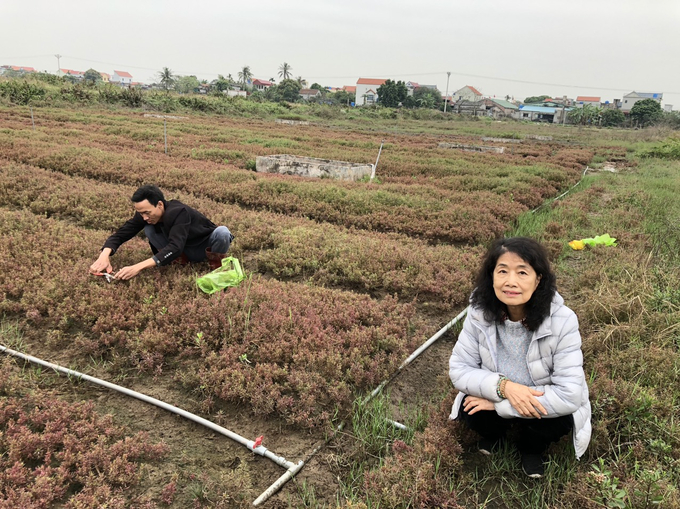
Dr. Ngo Kieu Oanh beside the sea salt vegetable beds, also known as salted pine vegetables in Thai Thuy, Thai Binh.
In the past, an overseas Vietnamese woman visited Dong que Farm in Ba Vi, Hanoi, which was owned by Dr. Ngo Kieu Oanh, an agricultural and tourism expert, and asked for her assistance in helping her son cultivate a type of salt-resistant vegetable.
Nicholas Shell, the son of this Vietnamese mother living abroad, was sent to Vietnam by the British company Seawater Solutions to experiment with an imported marine salicornia plant. Seawater Solutions is constructing a freshwater farm in the United Kingdom where plants thrive in saline water for the purpose of enhancing climate resilience and creating salt marsh ecosystems.
Dr. Ngo Kieu Oanh suggested that he transport this imported sea salicornia to Thai Binh for additional testing after it failed to thrive in Nam Dinh. A section of sandy soil near the coastal casuarina forest in Con Den, Thai Thuy district, has been thoroughly tilled, drip irrigation installed, and then planted with foreign sea salicornia, also known as marine asparagus due to the resemblance of their crowns to asparagus.
Strangely, when they were young, they were in excellent health, but as they aged, they contracted fungus and perished. Dr. Ngo Kieu Oanh stumbled upon salt pine while meandering along the salt farms near Ba Chua Muoi in Thuy Hai commune, Thai Thuy district, Thai Binh province. The locals refer to these trees as salt pine. Salt pine develops on saline soils in which vegetation cannot survive and is resistant to sea water. The realization then occurred to her that there must be comparable salted vegetables in Vietnam. Why import vegetables seasoned with sea salt when we can use those grown locally?
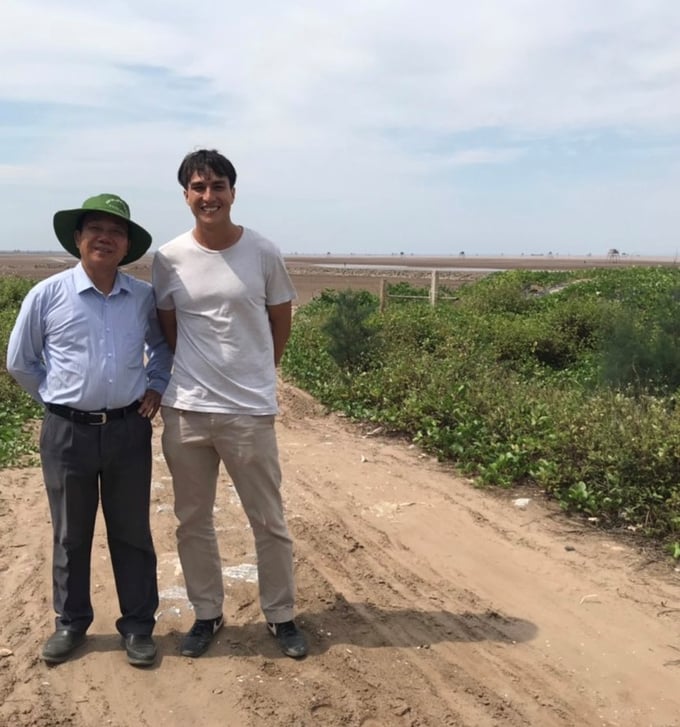
Nicholas Shell (right) in front of Thai Thuy salt field, Thai Binh province.
She did introduce Nicholas Shell to the Center for Plant Resources, from which the Center requested two research projects to investigate the taxonomy of the family of sea-salted vegetables with the Latin name halophytes and their organic farming process in Thai Binh, with the expectation that the tree will be grosser and more flavorful. A team of researchers lead by Elisabeth Boyko exploits the potential of naturally occurring halophytes (salt-tolerant plants in general) on a global scale. On the Mediterranean littoral, roughly 140 species of halophytes were evaluated as part of an experimental program.
Humans have been consuming halophytes for centuries, but the market for several species, including Salicornia, Suaeda maritima, Aster tripolium, and Chenopodium quinoa, has exploded in recent decades. Each year, more species are found to be commercially viable for fresh human consumption, dietary supplements, animal feed, and biofuels.
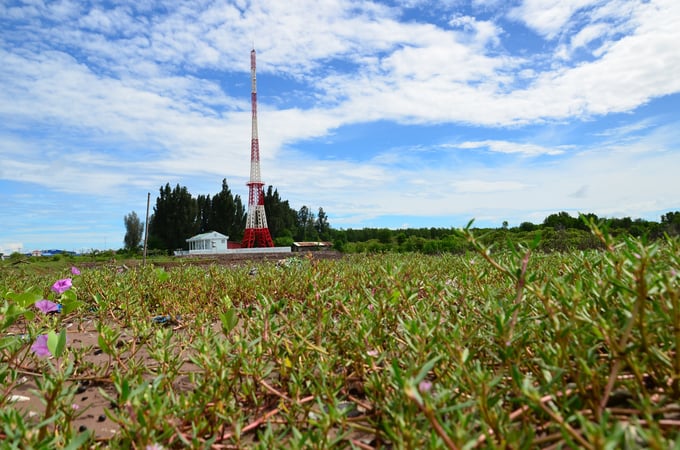
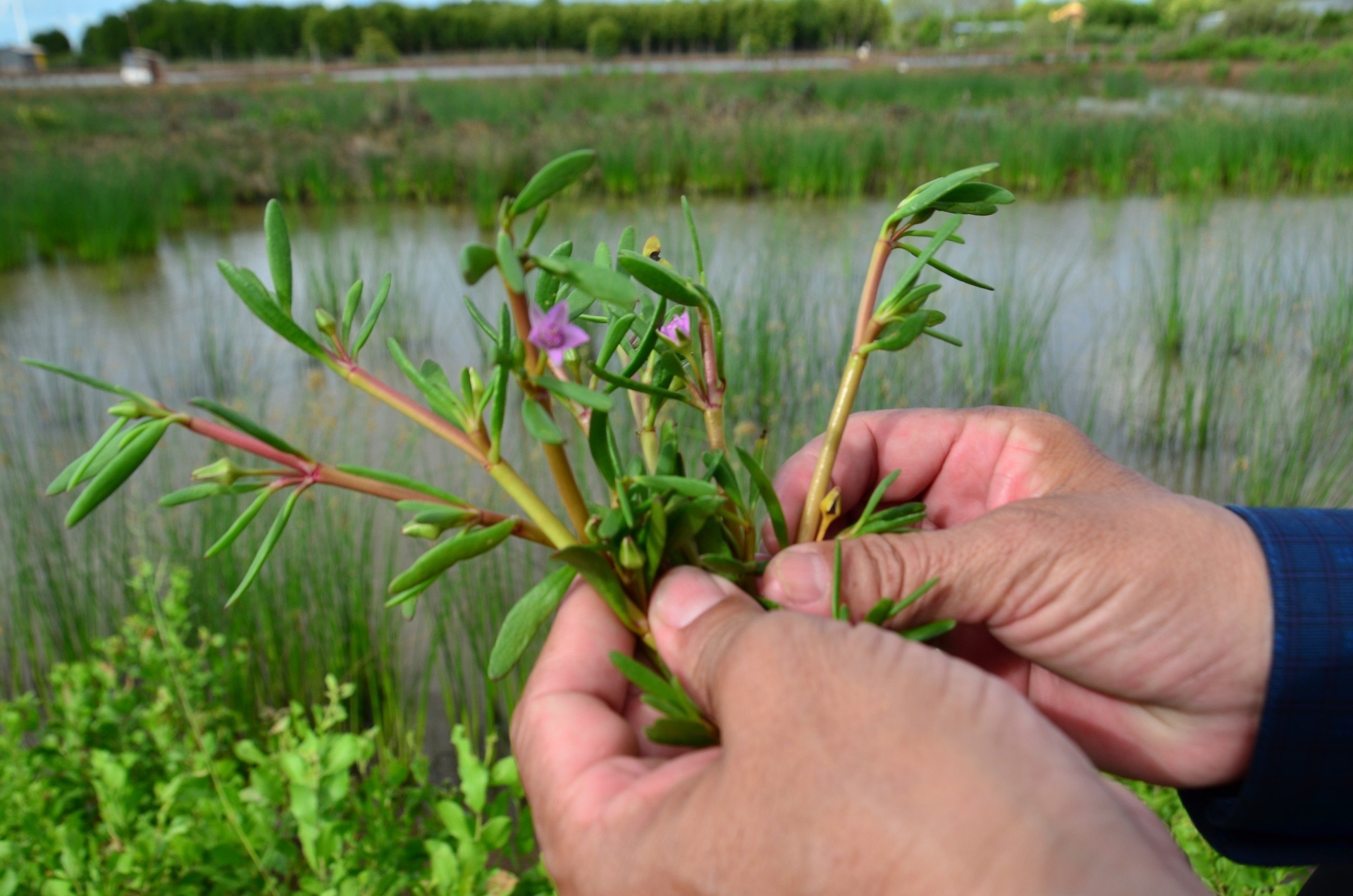
Salted purslane grows abundantly in Vinh Thinh commune, Hoa Binh district, Bac Lieu province. Photo: Duong Dinh Tuong.
The market size for these commodities in Europe is estimated at 24 million euros annually (Organic Monitor, 2014). Salicornia can be purchased in retail retailers for 20 to 30 euros per kilogram (Sainsbury's, 2020). In Vietnam, however, halophyte is not widely known or utilized. In coastal provinces and cities such as Hai Phong and Nghe An, where common vegetables are scarce, cultivators collect them in their leisure time to supplement their diets.
During a business journey in the salt production region of Quynh Luu district, Nghe An province, and in the Thieng Lieng hamlet of Can Gio district (Ho Chi Minh City), Dr. Ngo Kieu Oanh observed a vegetable known as salted purslane or marine purslane to distinguish it from fresh water purslane. The only issue is that the vegetable area is too small, resulting in insufficient output for manufacturing. She was invited by a non-governmental organization of the United Nations to the salt field of Vinh Thinh commune, Hoa Binh district, Bac Lieu province, to learn about pink salt produced from fertile alluvial soil and methods to create more livelihoods for salt workers.
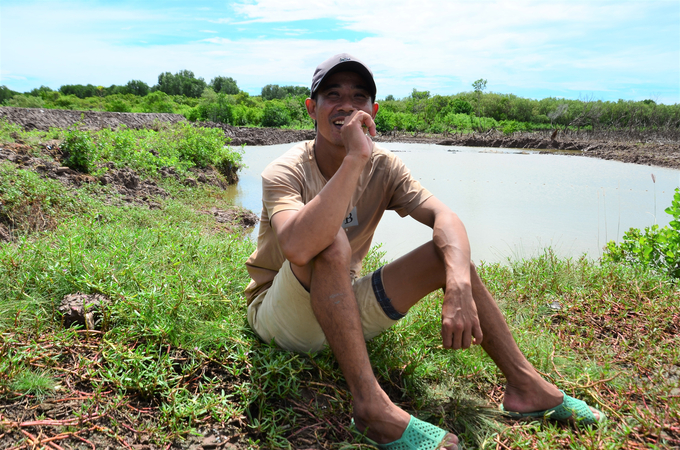
A resident in Vinh Thinh commune, Hoa Binh district, Bac Lieu province eats pork vegetables. Photo: Duong Dinh Tuong.
Even though she was in excruciating pain from the second Covid, she continued on her journey. After touring the salt fields in Vinh Thinh commune, she traveled to Dong Tien Cooperative, where 900 hectares are devoted to shellfish cultivation. Some individuals exclaimed, "Oh my god, why are you feeding a pig vegetables?" when she removed the tip of the vegetable and placed it in her mouth. She responded with laughter, "If pigs can eat and thrive, why can't humans?" Therefore, she instructed everyone that afternoon to consume "pig vegetables" in fresh form, dipped in a hotpot.
During the July 13 meeting on the situation of salt production, processing, and consumption, and the implementation of the salt industry development project for the period 2021-2030 chaired by Minister of Agriculture and Rural Development Le Minh Hoan, Dr. Ngo Kieu Oanh brought "pig vegetables" and pink salt from Bac Lieu to share their story. Next, the delegation of Hoa Binh district, Bac Lieu province, presented the leaders and officials of the Ministry of Agriculture and Rural Development with baskets of "pig vegetables" to be sampled with a dish of spicy beef noodle soup, a Western staple.
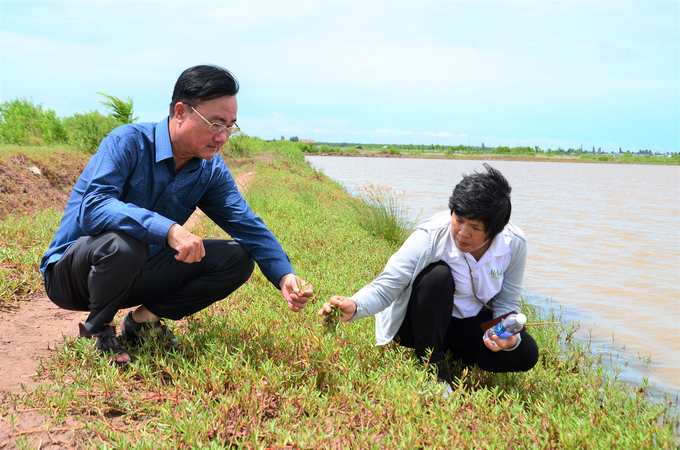
Mr. Co Tan Xuyen - Head of the Department of Agriculture and Rural Development, Hoa Binh district, Bac Lieu province picking vegetables and pigs with Dr. Linh Nham - Bac Lieu University. Photo: Duong Dinh Tuong.
When I told Dr. Ngo Kieu Oanh that salted purslane was extremely difficult to consume, she appeared dissatisfied because many recipients of the food extolled it. Dr. Linh Nham of Bac Lieu University is also interested in researching this preserved vegetable, I learned through her. So I decided to fly to the location to learn about preserved vegetables, how to consume them, and their benefits.
Translated by Linh Linh

(VAN) In the tranquil wetlands of Van Long, there are quiet souls who guard the forests, nurture the waters, and oversee every bird and troop of langurs as protecting the essence of a living heritage.

(VAN) WWF, GIZ, IUCN, UNDP call for biodiversity conservation and sustainable development must be regarded as a unity in strategies for a green future.

(VAN) On celebration of International Day for Biological Diversity, Deputy Minister Nguyen Quoc Tri called for practical actions to address nature and biodiversity conservation.

(VAN) Dr. Hoang Thi Thanh Nhan – Deputy Director of the Nature and Biodiversity Conservation Agency – highlighted this on the International Day for Biological Diversity, May 22, 2025.
![Ho Chi Minh city adapts to climate change: [2] Accelerating action](https://t.ex-cdn.com/nongnghiepmoitruong.vn/608w/files/chiqk/2025/05/22/4024-4220-bien-doi-khi-hau-1-100626_766.jpg)
(VAN) Clearly recognizing the challenges posed by climate change, Ho Chi Minh city has swiftly shaped its policies and implemented practical solutions to adapt.

(VAN) Rice straw is no longer just a discarded byproduct, but it is becoming a green resource that helps farmers in the Mekong Delta reduce emissions and promote circular, sustainable agriculture.

(VAN) Other Effective Area-based Conservation Measures (OECMs) are solutions that contribute effectively to achieving the goals of the Kunming–Montreal Global Biodiversity Framework.